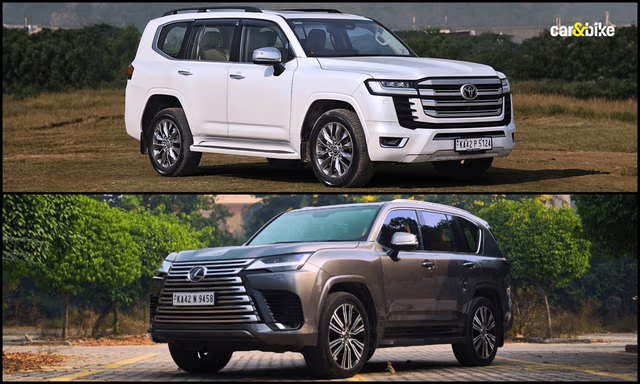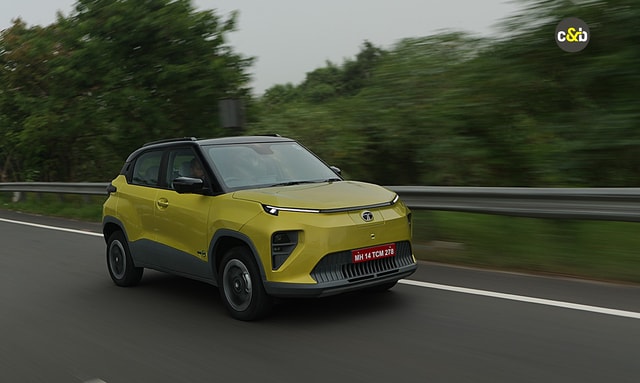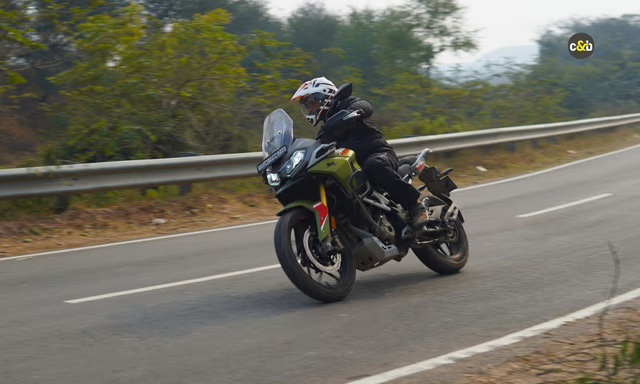For Charging Electric Vehicles, Our Policy Is To Use Green Power: Nitin Gadkari

- Gadkari said only clean energy will be used at charging stations.
- He also welcomed inputs from EV start-ups for developing charging infra.
- 2,877 public EV charging stations have been sanctioned in 68 cities.
During 'Question Hour' at the Parliament today, Union Minister of Road Transport and Highways, Nitin Gadkari, said that the Centre's policy for developing the charging infrastructure for electric vehicles in India is by using green power, particularly solar energy. The response was in context with a question put forth by Jayadev Galla, Telugu Desam Party MP from Guntur about the steps government is taking in making sure that clean energy is used for powering all charging stations in the country. Gadkari also pointed out that since the charging infrastructure technology is constantly changing, new research and inputs from EV start-ups will be welcomed.
undefinedलोकसभा में इलेक्ट्रिक वाहन और चार्जिंग स्टेशन के संबंध में केन्द्रीय मंत्री श्री @nitin_gadkari जी का उत्तर। #QuestionHour (part 2) pic.twitter.com/c367ct96PH
— Office Of Nitin Gadkari (@OfficeOfNG) March 31, 2022
Also Read: Union Minister Nitin Gadkari Requests For EV Chargers In Parliament Parking Lot
Citing an example of the use of clean energy for setting-up EV charging infrastructure, Gadkari said, “I am giving you the example of making available 650 roadside amenities on the National Highway, for which work for 40 amenities has already started, and in all the highways we will use solar power. In the area of Gujarat, and somewhere in Tamil Nadu wind power is also being used to provide power to charging stations.”

EV Charging Station
Also Read: Nitin Gadkari Drives Into The Parliament In Hydrogen-Powered Toyota Mirai
Gadkari also said, “In Phase 1, within the next 3 years, all megacities with a population of 4 million-plus as per census 2011, all existing expressways connecting to these megacities and highways connected with these megacities can be taken up for coverage. In phase 2, big cities like state capitals, UT headquarters, may also be covered for distributive and demonstrative effects. Further, important highways, connected to each of these cities may be taken up for coverage. In Phase 4, EESL (Energy Efficiency Services Limited) in consortium with the convergence energy services, has been awarded the work of setting up EV charging stations along 16 National Highway expressways.”
Also Read: Bosses Of Tata, HSBC, Macquarie Urge Governments To Do More For Green Transition
Recently, National Highways India (NHI) signed an MOU with EESL as per which NHI should provide, space, land near the toll plaza, and its building for installation of EV chargers based on revenue-sharing model. The number of electric vehicles in the country, as per Vahan on 25-03-2022, is 10,76,420 and a total of 1,742 Public Charging Stations (PCS), as per the Bureau of Energy Efficiency (BEE), are operational in the country, as on 21-03-2022.

2,877 public EV charging stations have been sanctioned in 68 cities.
Also Read: Petrol And Diesel Prices Up by 80 Paise Leading To A Hike Of ₹ 6.40 Within 10 Days
Under the Scheme for Faster Adoption and Manufacturing of Electric Vehicles in India Phase-II (FAME India Phase II) of the Ministry of Heavy Industries, 2,877 public EV charging stations have been sanctioned in 68 cities.
Latest News
 car&bike Team | Feb 28, 2026Zero-Dep Cover: The Renewal Add-on That Ensures You Don’t Pay for Parts1 min read
car&bike Team | Feb 28, 2026Zero-Dep Cover: The Renewal Add-on That Ensures You Don’t Pay for Parts1 min read car&bike Team | Feb 28, 2026Toyota Land Cruiser, Lexus LX Recalled Over Transmission Malfunction RiskThe recall affects 969 units of the Toyota Land Cruiser and 117 units of the Lexus LX.1 min read
car&bike Team | Feb 28, 2026Toyota Land Cruiser, Lexus LX Recalled Over Transmission Malfunction RiskThe recall affects 969 units of the Toyota Land Cruiser and 117 units of the Lexus LX.1 min read Jaiveer Mehra | Feb 27, 2026New Tata Tiago EV Spied Testing On Indian Roads: Enhanced Range Incoming?Launched in India in 2022, the Tiago EV received a notable update last year, adding in newer features and some styling tweaks.3 mins read
Jaiveer Mehra | Feb 27, 2026New Tata Tiago EV Spied Testing On Indian Roads: Enhanced Range Incoming?Launched in India in 2022, the Tiago EV received a notable update last year, adding in newer features and some styling tweaks.3 mins read car&bike Team | Feb 27, 2026VLF Mobster 135 Price Hiked As Introductory Offer EndsThe Mobster 135 is now priced at Rs 1.37 lakh (ex-showroom), which marks an increase of Rs 7,000.2 mins read
car&bike Team | Feb 27, 2026VLF Mobster 135 Price Hiked As Introductory Offer EndsThe Mobster 135 is now priced at Rs 1.37 lakh (ex-showroom), which marks an increase of Rs 7,000.2 mins read car&bike Team | Feb 27, 2026New MG plug-in hybrid SUV Spied testing In India AgainMG’s next new launch in the Indian market could be the Wuling Starlight 560-based model that has been spied on test for the second time in India.2 mins read
car&bike Team | Feb 27, 2026New MG plug-in hybrid SUV Spied testing In India AgainMG’s next new launch in the Indian market could be the Wuling Starlight 560-based model that has been spied on test for the second time in India.2 mins read Jaiveer Mehra | Feb 27, 2026Mini Cooper S Victory Edition Bookings Open In IndiaSpecial edition of the Mini hatchback commemorates the brand’s 1965 Monte Carlo Rally victory.1 min read
Jaiveer Mehra | Feb 27, 2026Mini Cooper S Victory Edition Bookings Open In IndiaSpecial edition of the Mini hatchback commemorates the brand’s 1965 Monte Carlo Rally victory.1 min read
 Bilal Firfiray | Feb 28, 2026Tata Punch EV Facelift Review: More Range, More Sense, Less MoneyThe Tata Punch EV facelift gets a bigger 40 kWh battery, faster 60 kW DC charging, improved thermal management, and better real-world range, and all of that at a lower introductory price. But does it become a more complete package now?6 mins read
Bilal Firfiray | Feb 28, 2026Tata Punch EV Facelift Review: More Range, More Sense, Less MoneyThe Tata Punch EV facelift gets a bigger 40 kWh battery, faster 60 kW DC charging, improved thermal management, and better real-world range, and all of that at a lower introductory price. But does it become a more complete package now?6 mins read Preetam Bora | Feb 24, 2026Hero Destini 110 Review: Simplicity, RefinedThe Hero Destini 110 is a no-nonsense commuter that is simple, comfortable and above all, fuel efficient. In 2026, when buyers are spoilt for choice, is it good enough to consider?1 min read
Preetam Bora | Feb 24, 2026Hero Destini 110 Review: Simplicity, RefinedThe Hero Destini 110 is a no-nonsense commuter that is simple, comfortable and above all, fuel efficient. In 2026, when buyers are spoilt for choice, is it good enough to consider?1 min read Preetam Bora | Feb 23, 2026TVS Apache RTX Road Test Review: Redefining the Entry-Level ADVAfter spending some time with the TVS Apache RTX in traffic, the daily commute, as well as on open highways, one thing becomes clear: the RTX is trying to redefine the entry-level ADV segment. But is it without fault?1 min read
Preetam Bora | Feb 23, 2026TVS Apache RTX Road Test Review: Redefining the Entry-Level ADVAfter spending some time with the TVS Apache RTX in traffic, the daily commute, as well as on open highways, one thing becomes clear: the RTX is trying to redefine the entry-level ADV segment. But is it without fault?1 min read Girish Karkera | Feb 20, 2026Road Test: 2025 VinFast VF7 AWD Sky InfinityFlagship all-electric SUV from the Vietnamese car maker gets most of the basics right.1 min read
Girish Karkera | Feb 20, 2026Road Test: 2025 VinFast VF7 AWD Sky InfinityFlagship all-electric SUV from the Vietnamese car maker gets most of the basics right.1 min read Jaiveer Mehra | Feb 18, 2026New BMW X3 30 Vs Mercedes-Benz GLC 300: Midsize Luxury SUV FaceoffWith the new X3 30, BMW has a direct competitor to the petrol GLC 300, but which is the luxury SUV for you?1 min read
Jaiveer Mehra | Feb 18, 2026New BMW X3 30 Vs Mercedes-Benz GLC 300: Midsize Luxury SUV FaceoffWith the new X3 30, BMW has a direct competitor to the petrol GLC 300, but which is the luxury SUV for you?1 min read




























































































































